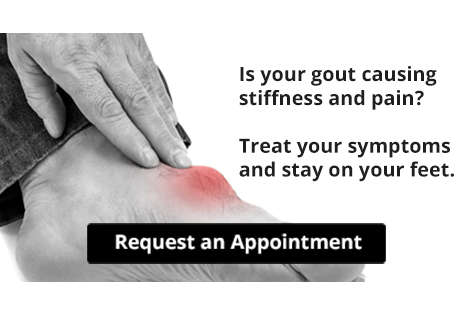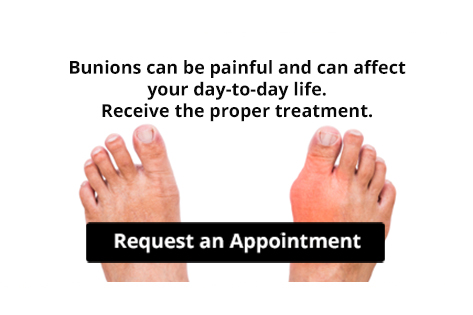Connect With Us
Blog
Blog
Can Medical Conditions Cause Cracked Heels?
 A common cause of cracked heels often begins with dry skin. As this progresses, the skin on the outer edges of the heel may bleed, causing pain and discomfort. This can happen as a result of environment, genetics, and medical conditions that can include diabetes and thyroid concerns. It may become worse as daily activities are accomplished, and this may be a result of the weight the heel endures while standing and walking. Many patients have found relief when the feet are washed and dried thoroughly, followed by applying a good moisturizer. For mild cases of cracked heels, it may be beneficial to soak the feet in warm water to soften the skin. If you have the beginning symptoms of cracked heels, it is suggested that you consult with a podiatrist who can offer you proper treatment techniques.
A common cause of cracked heels often begins with dry skin. As this progresses, the skin on the outer edges of the heel may bleed, causing pain and discomfort. This can happen as a result of environment, genetics, and medical conditions that can include diabetes and thyroid concerns. It may become worse as daily activities are accomplished, and this may be a result of the weight the heel endures while standing and walking. Many patients have found relief when the feet are washed and dried thoroughly, followed by applying a good moisturizer. For mild cases of cracked heels, it may be beneficial to soak the feet in warm water to soften the skin. If you have the beginning symptoms of cracked heels, it is suggested that you consult with a podiatrist who can offer you proper treatment techniques.
Cracked heels are unsightly and can cause further damage to your shoes and feet. If you have any concerns, contact Dr. Sheldon D. Simon from Kentucky . Our doctor can provide the care you need to keep you pain-free and on your feet.
Cracked Heels
Cracked heels appear unappealing and can make it harder for you walk around in sandals. Aside from looking unpleasant, cracked heels can also tear stockings, socks, and wear out your shoes. There are several methods to help restore a cracked heel and prevent further damage.
How Do You Get Them?
Dry skin is the number one culprit in creating cracked heels. Many athletes, walkers, joggers, and even swimmers suffer from cracked heels. Age and skin oil production play a role to getting cracked heels as well.
Promote Healing
Over the counter medicines can help, especially for those that need instant relief or who suffer from chronic dry feet.
Wear Socks – Wearing socks with medicated creams helps lock in moisture.
Moisturizers – Applying both day and night will help alleviate dryness which causes cracking.
Pumice Stones – These exfoliate and remove dead skin, which allows for smoother moisturizer application and better absorption into the skin.
Change in Diet
Eating healthy with a well-balanced diet will give the skin a fresh and radiant look. Your body responds to the kinds of food you ingest. Omega-3 fatty acids and zinc supplements can also revitalize skin tissue.
Most importantly, seek professional help if unsure how to proceed in treating cracked heels. A podiatrist will help you with any questions or information needed.
If you have any questions, please feel free to contact our office located in Owensboro, KY . We offer the newest diagnostic and treatment technologies for all your foot care needs.
Read more about Solutions for Cracked HeelsGout Pain Can Be Managed
Possible Causes of Plantar Hyperhidrosis
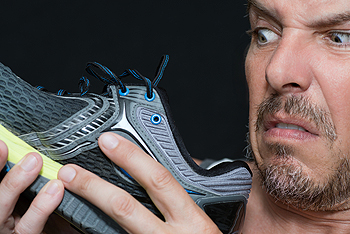 Patients who have excessively sweaty feet may have a condition that is referred to as plantar hyperhidrosis. It may be caused by genetic factors, in addition to extreme emotional or physical stress. This condition may be treated by wearing inner soles that are absorbent, and the feet may feel better while using powders that can absorb the sweat. Additionally, it may help to change socks frequently, which may be beneficial in preventing an infection. If you are suffering from sweaty feet, it is advised that you seek the counsel of a podiatrist who can help you find the right treatment method.
Patients who have excessively sweaty feet may have a condition that is referred to as plantar hyperhidrosis. It may be caused by genetic factors, in addition to extreme emotional or physical stress. This condition may be treated by wearing inner soles that are absorbent, and the feet may feel better while using powders that can absorb the sweat. Additionally, it may help to change socks frequently, which may be beneficial in preventing an infection. If you are suffering from sweaty feet, it is advised that you seek the counsel of a podiatrist who can help you find the right treatment method.
If you are suffering from hyperhidrosis contact Dr. Sheldon D. Simon of Kentucky . Our doctor can provide the care you need to attend to all of your foot and ankle needs.
Hyperhidrosis of the Feet
Hyperhidrosis is a rare disorder that can cause people to have excessive sweating of their feet. This can usually occur all on its own without rigorous activity involved. People who suffer from hyperhidrosis may also experience sweaty palms.
Although it is said that sweating is a healthy process meant to cool down the body temperature and to maintain a proper internal temperature, hyperhidrosis may prove to be a huge hindrance on a person’s everyday life.
Plantar hyperhidrosis is considered to be the main form of hyperhidrosis. Secondary hyperhidrosis can refer to sweating that occurs in areas other than the feet or hands and armpits. Often this may be a sign of it being related to another medical condition such as menopause, hyperthyroidism and even Parkinson’s disease.
In order to alleviate this condition, it is important to see your doctor so that they may prescribe the necessary medications so that you can begin to live a normal life again. If this is left untreated, it is said that it will persist throughout an individual’s life.
A last resort approach would be surgery, but it is best to speak with your doctor to find out what may be the best treatment for you.
If you have any questions please feel free to contact our office located in Owensboro, KY . We offer the newest diagnostic and treatment technologies for all your foot and ankle needs.
Read more about Hyperhidrosis of the FeetPainful Achilles Tendon Injury
The Achilles tendon is comprised of two muscles in the calf, and is considered to be the strongest tendon in the body. Injuries to this tendon can be caused by participating in running and jumping activities. Additionally, they can occur as a result of wearing flip flops in the warmer weather, which may cause the Achilles tendon to stretch further than it normally would. Common symptoms that are typically felt with this type of injury may consist of the inability to point and flex the toes, soreness that is felt upon arising in the morning, and difficulty walking. Moderate relief may be found when the proper shoes are worn, and if gentle stretches are implemented into a daily routine. If you have injured your Achilles tendon, it is strongly advised that you consult with a podiatrist who can properly treat this condition.
Achilles tendon injuries need immediate attention to avoid future complications. If you have any concerns, contact Dr. Sheldon D. Simon of Kentucky . Our doctor can provide the care you need to keep you pain-free and on your feet.
What Is the Achilles Tendon?
The Achilles tendon is a tendon that connects the lower leg muscles and calf to the heel of the foot. It is the strongest tendon in the human body and is essential for making movement possible. Because this tendon is such an integral part of the body, any injuries to it can create immense difficulties and should immediately be presented to a doctor.
What Are the Symptoms of an Achilles Tendon Injury?
There are various types of injuries that can affect the Achilles tendon. The two most common injuries are Achilles tendinitis and ruptures of the tendon.
Achilles Tendinitis Symptoms
- Inflammation
- Dull to severe pain
- Increased blood flow to the tendon
- Thickening of the tendon
Rupture Symptoms
- Extreme pain and swelling in the foot
- Total immobility
Treatment and Prevention
Achilles tendon injuries are diagnosed by a thorough physical evaluation, which can include an MRI. Treatment involves rest, physical therapy, and in some cases, surgery. However, various preventative measures can be taken to avoid these injuries, such as:
- Thorough stretching of the tendon before and after exercise
- Strengthening exercises like calf raises, squats, leg curls, leg extensions, leg raises, lunges, and leg presses
If you have any questions please feel free to contact our office located in Owensboro, KY . We offer the newest diagnostic tools and technology to treat your foot and ankle needs.
Read more about Achilles Tendon InjuriesCan Flat Feet Cause Pain?
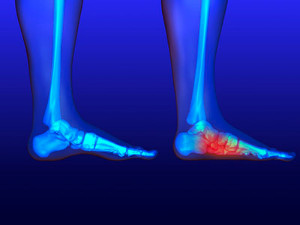 An effective way of checking to see if you have flat feet is to stand on the floor and notice if your entire foot touches the ground. Flat feet are generally not a cause for serious concern, despite the fact that there may be mild pain. Moderate relief may be found when custom made orthotics are worn, and this may help to provide the arch support that is needed for daily walking. Additionally, there may be specific foot stretches that can be frequently practiced which can be beneficial in strengthening the foot. Common causes for this condition can include genetic factors, insufficient foot growth, or medical conditions that may affect the foot muscles. If you have flat feet, it is suggested that you be under the care of a podiatrist who can help you with managing this condition.
An effective way of checking to see if you have flat feet is to stand on the floor and notice if your entire foot touches the ground. Flat feet are generally not a cause for serious concern, despite the fact that there may be mild pain. Moderate relief may be found when custom made orthotics are worn, and this may help to provide the arch support that is needed for daily walking. Additionally, there may be specific foot stretches that can be frequently practiced which can be beneficial in strengthening the foot. Common causes for this condition can include genetic factors, insufficient foot growth, or medical conditions that may affect the foot muscles. If you have flat feet, it is suggested that you be under the care of a podiatrist who can help you with managing this condition.
Flatfoot is a condition many people suffer from. If you have flat feet, contact Dr. Sheldon D. Simon from Kentucky . Our doctor will treat your foot and ankle needs.
What Are Flat Feet?
Flatfoot is a condition in which the arch of the foot is depressed and the sole of the foot is almost completely in contact with the ground. About 20-30% of the population generally has flat feet because their arches never formed during growth.
Conditions & Problems:
Having flat feet makes it difficult to run or walk because of the stress placed on the ankles.
Alignment – The general alignment of your legs can be disrupted, because the ankles move inward which can cause major discomfort.
Knees – If you have complications with your knees, flat feet can be a contributor to arthritis in that area.
Symptoms
- Pain around the heel or arch area
- Trouble standing on the tip toe
- Swelling around the inside of the ankle
- Flat look to one or both feet
- Having your shoes feel uneven when worn
Treatment
If you are experiencing pain and stress on the foot you may weaken the posterior tibial tendon, which runs around the inside of the ankle.
If you have any questions please feel free to contact our office located in Owensboro, KY . We offer the newest diagnostic and treatment technologies for all your foot and ankle needs.
Read more about Flat FeetSimple Foot Care May Prevent Painful Conditions
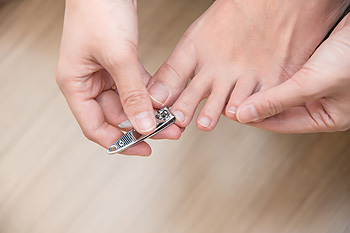 When the feet are cared for properly and on a regular basis, uncomfortable foot conditions may be prevented. There are routines that are easy to follow which can help assure the feet stay in optimum condition. These can include washing and drying the feet thoroughly, followed by using a good moisturizer. Additionally, when the toenails are trimmed, it is best to cut the nails straight across instead of at an angle. This may be helpful in preventing ingrown toenails from developing. Despite the fact that many people like to wear high heels, research has indicated it is beneficial to wear them for limited times, in addition to alternating them with shoes that have a lower heel. Athlete’s foot may be avoided when appropriate shoes are worn in public shower rooms, and surrounding areas. If you would like more information about how to properly care for your feet on an everyday basis, please consult with a podiatrist.
When the feet are cared for properly and on a regular basis, uncomfortable foot conditions may be prevented. There are routines that are easy to follow which can help assure the feet stay in optimum condition. These can include washing and drying the feet thoroughly, followed by using a good moisturizer. Additionally, when the toenails are trimmed, it is best to cut the nails straight across instead of at an angle. This may be helpful in preventing ingrown toenails from developing. Despite the fact that many people like to wear high heels, research has indicated it is beneficial to wear them for limited times, in addition to alternating them with shoes that have a lower heel. Athlete’s foot may be avoided when appropriate shoes are worn in public shower rooms, and surrounding areas. If you would like more information about how to properly care for your feet on an everyday basis, please consult with a podiatrist.
Everyday foot care is very important to prevent infection and other foot ailments. If you need your feet checked, contact Dr. Sheldon D. Simon from Kentucky . Our doctor can provide the care you need to keep you pain-free and on your feet.
Everyday Foot Care
Often, people take care of their bodies, face and hair more so than they do for their feet. But the feet are a very important aspect of our bodies, and one that we should pay more attention to. Without our feet, we would not be able to perform most daily tasks.
It is best to check your feet regularly to make sure there are no new bruises or cuts that you may not have noticed before. For dry feet, moisturizer can easily be a remedy and can be applied as often as necessary to the affected areas. Wearing shoes that fit well can also help you maintain good foot health, as well as making it easier to walk and do daily activities without the stress or pain of ill-fitting shoes, high heels, or even flip flops. Wearing clean socks with closed shoes is important to ensure that sweat and bacteria do not accumulate within the shoe. Clean socks help to prevent Athlete’s foot, fungi problems, bad odors, and can absorb sweat.
If you have any questions please feel free to contact our office located in Owensboro, KY . We offer the newest diagnostic and treatment technologies for all your foot and ankle needs.
Read more about Everyday Foot CareAre Bunions Affecting Your Everyday Life?
Bunion Surgery
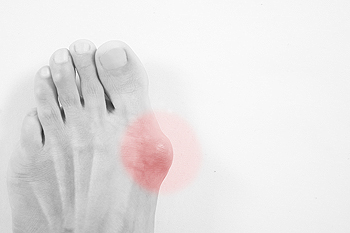 A bony protrusion on the bottom of the big toe may be indicative of a bunion. It develops as a result of wearing shoes that do not have enough room for the toes to move freely in, or it may come from certain genetic factors. They can cause severe pain and discomfort, and in certain cases, surgery may be necessary for permanent relief. Patients may be eligible for surgery if there is consistent pain while performing daily activities, or if you are unable to straighten or bend your big toe. There are specific types of bunion surgery. An osteotomy consists of cutting the joint in the big toe, and aligning it to it’s normal placement. An exostectomy is performed when the bunion is removed from the joint, and an alignment is not necessary. If metal plates are needed to correct the deformity, an arthrodesis may be performed. If you have a bunion, please consult with a podiatrist who can help you to determine if bunion surgery is correct for you.
A bony protrusion on the bottom of the big toe may be indicative of a bunion. It develops as a result of wearing shoes that do not have enough room for the toes to move freely in, or it may come from certain genetic factors. They can cause severe pain and discomfort, and in certain cases, surgery may be necessary for permanent relief. Patients may be eligible for surgery if there is consistent pain while performing daily activities, or if you are unable to straighten or bend your big toe. There are specific types of bunion surgery. An osteotomy consists of cutting the joint in the big toe, and aligning it to it’s normal placement. An exostectomy is performed when the bunion is removed from the joint, and an alignment is not necessary. If metal plates are needed to correct the deformity, an arthrodesis may be performed. If you have a bunion, please consult with a podiatrist who can help you to determine if bunion surgery is correct for you.
Foot surgery is sometimes necessary to treat a foot ailment. To learn more, contact Dr. Sheldon D. Simon of Kentucky . Our doctor will assist you with all of your foot and ankle needs.
When Is Surgery Necessary?
Foot and ankle surgery is generally reserved for cases in which less invasive, conservative procedures have failed to alleviate the problem. Some of the cases in which surgery may be necessary include:
- Removing foot deformities like bunions and bone spurs
- Severe arthritis that has caused bone issues
- Cosmetic reconstruction
What Types of Surgery Are There?
The type of surgery you receive will depend on the nature of the problem you have. Some of the possible surgeries include:
- Bunionectomy for painful bunions
- Surgical fusion for realignment of bones
- Neuropathy decompression surgery to treat nerve damage
Benefits of Surgery
Although surgery is usually a last resort, it can provide more complete pain relief compared to non-surgical methods and may allow you to finally resume full activity.
Surgical techniques have also become increasingly sophisticated. Techniques like endoscopic surgery allow for smaller incisions and faster recovery times.
If you have any questions please feel free to contact our office located in Owensboro, KY . We offer the newest diagnostic and treatment technologies for all your foot and ankle needs.
Read more about Foot SurgeryPossible Causes of Cracked Heels
 Dry skin will generally precede the condition that is known as cracked heels. This ailment affects the outer edges of the heels and can cause severe pain and discomfort. Common reasons for cracked heels to develop can include standing for extended periods of time throughout the day, wearing shoes that have an open back, or medical conditions such as eczema or psoriasis. Research has indicated that it may be beneficial to sanitize a bowl and soak your feet in warm water. This, followed by using a good moisturizer, can be useful in locking in the moisture that soaking the feet provided. If you are severely affected by cracked heels, it is suggested that you consult with a podiatrist who can offer you treatment options and discuss preventative methods.
Dry skin will generally precede the condition that is known as cracked heels. This ailment affects the outer edges of the heels and can cause severe pain and discomfort. Common reasons for cracked heels to develop can include standing for extended periods of time throughout the day, wearing shoes that have an open back, or medical conditions such as eczema or psoriasis. Research has indicated that it may be beneficial to sanitize a bowl and soak your feet in warm water. This, followed by using a good moisturizer, can be useful in locking in the moisture that soaking the feet provided. If you are severely affected by cracked heels, it is suggested that you consult with a podiatrist who can offer you treatment options and discuss preventative methods.
If the skin on your feet starts to crack, you may want to see a podiatrist to find treatment. If you have any concerns, contact Dr. Sheldon D. Simon from Kentucky . Our doctor can provide the care you need to keep you pain-free and on your feet.
Cracked Heels
It is important to moisturize your cracked heels in order to prevent pain, bleeding, and infection. The reason cracked heels form is because the skin on the foot is too dry to support the immense pressure placed on them. When the foot expands, the dry skin on the foot begins to split.
Ways to Help Heal Them
- Invest in a good foot cream
- Try Using Petroleum Jelly
- Ease up on Soaps
- Drink Plenty of Water
Ways to Prevent Cracked Heels
- Moisturize After Showering
- Skip a Shower
- Keep Shower Water Lukewarm
- Don’t Scrub Your Feet
If you are unsure how to proceed in treating cracked heels, seek guidance from a podiatrist. Your doctor will help you with any questions or information you may need.
If you have any questions, please feel free to contact our office located in Owensboro, KY . We offer the newest diagnostic and treatment technologies for all your foot care needs.
Read more about Solutions for Cracked HeelsBacteria and Sweaty Feet
 When the feet sweat continuously, it may be a condition that is known as plantar hyperhidrosis. Sweaty feet can be uncomfortable and may lead to bacterial and fungal infections. It is beneficial to wear socks and shoes that are made from a breathable material, which may help to control any odor that can come from the feet. Research has indicated that walking barefoot as often as possible may help to manage this condition, in addition to refraining from wearing the same pair of shoes for two days in a row. Some patients find it helpful to use an antiperspirant on their feet, as well as wear insoles that can absorb the sweat. If you are suffering from this condition, it is strongly suggested that you consult with a podiatrist who can help you to control plantar hyperhidrosis.
When the feet sweat continuously, it may be a condition that is known as plantar hyperhidrosis. Sweaty feet can be uncomfortable and may lead to bacterial and fungal infections. It is beneficial to wear socks and shoes that are made from a breathable material, which may help to control any odor that can come from the feet. Research has indicated that walking barefoot as often as possible may help to manage this condition, in addition to refraining from wearing the same pair of shoes for two days in a row. Some patients find it helpful to use an antiperspirant on their feet, as well as wear insoles that can absorb the sweat. If you are suffering from this condition, it is strongly suggested that you consult with a podiatrist who can help you to control plantar hyperhidrosis.
If you are suffering from hyperhidrosis contact Dr. Sheldon D. Simon of Kentucky . Our doctor can provide the care you need to attend to all of your foot and ankle needs.
Hyperhidrosis of the Feet
Hyperhidrosis is a rare disorder that can cause people to have excessive sweating of their feet. This can usually occur all on its own without rigorous activity involved. People who suffer from hyperhidrosis may also experience sweaty palms.
Although it is said that sweating is a healthy process meant to cool down the body temperature and to maintain a proper internal temperature, hyperhidrosis may prove to be a huge hindrance on a person’s everyday life.
Plantar hyperhidrosis is considered to be the main form of hyperhidrosis. Secondary hyperhidrosis can refer to sweating that occurs in areas other than the feet or hands and armpits. Often this may be a sign of it being related to another medical condition such as menopause, hyperthyroidism and even Parkinson’s disease.
In order to alleviate this condition, it is important to see your doctor so that they may prescribe the necessary medications so that you can begin to live a normal life again. If this is left untreated, it is said that it will persist throughout an individual’s life.
A last resort approach would be surgery, but it is best to speak with your doctor to find out what may be the best treatment for you.
If you have any questions please feel free to contact our office located in Owensboro, KY . We offer the newest diagnostic and treatment technologies for all your foot and ankle needs.
Read more about Hyperhidrosis of the FeetMore...
Are You Suffering From Ingrown Toenails?
Fungus and Athlete’s Foot
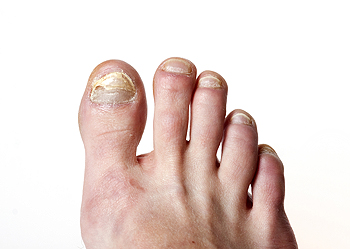 Athlete’s foot is a common condition that affects the bottom of the feet or in between the toes. It can be uncomfortable as a result of consistent itching, and in severe cases, blisters may form. It is caused by a fungus that typically lives and thrives in moist environments. These types of areas often include public swimming pools, shower room floors, and surrounding areas. It is considered to be contagious, and an effective prevention method may consist of wearing appropriate shoes while in these places. Some patients may find mild relief if an anti-fungal spray is applied. If you are noticing symptoms of athlete's foot, it is suggested that you speak to a podiatrist who can properly diagnosis this condition, and prescribe medication if this ailment is severe.
Athlete’s foot is a common condition that affects the bottom of the feet or in between the toes. It can be uncomfortable as a result of consistent itching, and in severe cases, blisters may form. It is caused by a fungus that typically lives and thrives in moist environments. These types of areas often include public swimming pools, shower room floors, and surrounding areas. It is considered to be contagious, and an effective prevention method may consist of wearing appropriate shoes while in these places. Some patients may find mild relief if an anti-fungal spray is applied. If you are noticing symptoms of athlete's foot, it is suggested that you speak to a podiatrist who can properly diagnosis this condition, and prescribe medication if this ailment is severe.
Athlete’s Foot
Athlete’s foot is often an uncomfortable condition to experience. Thankfully, podiatrists specialize in treating athlete’s foot and offer the best treatment options. If you have any questions about athlete’s foot, consult with Dr. Sheldon D. Simon from Kentucky . Our doctor will assess your condition and provide you with quality treatment.
What Is Athlete’s Foot?
Tinea pedis, more commonly known as athlete’s foot, is a non-serious and common fungal infection of the foot. Athlete’s foot is contagious and can be contracted by touching someone who has it or infected surfaces. The most common places contaminated by it are public showers, locker rooms, and swimming pools. Once contracted, it grows on feet that are left inside moist, dark, and warm shoes and socks.
Prevention
The most effective ways to prevent athlete’s foot include:
- Thoroughly washing and drying feet
- Avoid going barefoot in locker rooms and public showers
- Using shower shoes in public showers
- Wearing socks that allow the feet to breathe
- Changing socks and shoes frequently if you sweat a lot
Symptoms
Athlete’s foot initially occurs as a rash between the toes. However, if left undiagnosed, it can spread to the sides and bottom of the feet, toenails, and if touched by hand, the hands themselves. Symptoms include:
- Redness
- Burning
- Itching
- Scaly and peeling skin
Diagnosis and Treatment
Diagnosis is quick and easy. Skin samples will be taken and either viewed under a microscope or sent to a lab for testing. Sometimes, a podiatrist can diagnose it based on simply looking at it. Once confirmed, treatment options include oral and topical antifungal medications.
If you have any questions, please feel free to contact our office located in Owensboro, KY . We offer the newest diagnostic and treatment technologies for all your foot care needs.
Read more about How to Deal with Athlete's Foot
Different Shoes for Different Types of Running
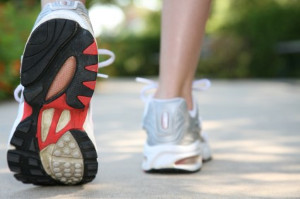 People who enjoy running are generally aware of the importance of choosing the right running shoe. These types of shoes fall into different categories based on running style. Additionally, for heavier runners, it is helpful to select shoes that have added stability. Research has indicated that determining how often running is practiced can help you to choose the correct shoe style. If your style of running includes exposure to mountains or trails, it may be beneficial to choose shoes that have additional traction. It is suggested that you consult with a podiatrist who can help you to determine which type of running shoe is best for you.
People who enjoy running are generally aware of the importance of choosing the right running shoe. These types of shoes fall into different categories based on running style. Additionally, for heavier runners, it is helpful to select shoes that have added stability. Research has indicated that determining how often running is practiced can help you to choose the correct shoe style. If your style of running includes exposure to mountains or trails, it may be beneficial to choose shoes that have additional traction. It is suggested that you consult with a podiatrist who can help you to determine which type of running shoe is best for you.
If you are a runner, wearing the right running shoe is essential. For more information, contact Dr. Sheldon D. Simon from Kentucky . Our doctor can provide the care you need to keep you pain-free and on your feet.
Choosing the Right Running Shoe for Your Foot Type
To increase performance and avoid the risk of injury, it is important to choose the right running shoe based on your foot type. The general design of running shoes revolves around pronation, which is how the ankle rolls from outside to inside when the foot strikes the ground.
- Neutral runners are able to choose from a wide variety of shoes, including minimalist shoes or even going barefoot.
- Runners who overpronate, or experience an over-abundance of ankle rolling, should choose shoes that provide extra motion control and stability.
- Runners who underpronate, or supinate, have feet that have high arches and lack flexibility, preventing shock absorption. They require shoes with more flexibility and cushion.
If you have any questions please feel free to contact our office located in Owensboro, KY . We offer the newest diagnostic and treatment technologies for all your foot and ankle needs.
Read more about Choosing the Right Running Shoe for Your Foot TypePossible Methods That May Help To Prevent Falling
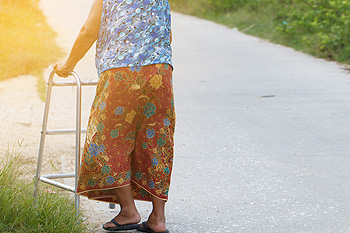 Elderly people may experience a certain amount of instability, which may lead to falling. This unnatural movement has the potential of causing serious health ailments. Many patients who have fallen have developed a fear of falling, and this may prevent them from being as active as they once were. This may possibly cause the body to lose strength and flexibility. There are methods that can be implemented which may help to reduce the risk of falling. These can consist of increasing the lighting in the household, installing grab bars in the toilet and shower areas, and removing any existing loose carpeting. Research has indicated it may be beneficial to have a routine physical examination, and this may be helpful in determining the effectiveness of current medications. If you would like additional information about how falling can affect the feet, it is suggested that you consult with a podiatrist.
Elderly people may experience a certain amount of instability, which may lead to falling. This unnatural movement has the potential of causing serious health ailments. Many patients who have fallen have developed a fear of falling, and this may prevent them from being as active as they once were. This may possibly cause the body to lose strength and flexibility. There are methods that can be implemented which may help to reduce the risk of falling. These can consist of increasing the lighting in the household, installing grab bars in the toilet and shower areas, and removing any existing loose carpeting. Research has indicated it may be beneficial to have a routine physical examination, and this may be helpful in determining the effectiveness of current medications. If you would like additional information about how falling can affect the feet, it is suggested that you consult with a podiatrist.
Preventing falls among the elderly is very important. If you are older and have fallen or fear that you are prone to falling, consult with Dr. Sheldon D. Simon from Kentucky . Our doctor will assess your condition and provide you with quality advice and care.
Every 11 seconds, an elderly American is being treated in an emergency room for a fall related injury. Falls are the leading cause of head and hip injuries for those 65 and older. Due to decreases in strength, balance, senses, and lack of awareness, elderly persons are very susceptible to falling. Thankfully, there are a number of things older persons can do to prevent falls.
How to Prevent Falls
Some effective methods that older persons can do to prevent falls include:
- Enrolling in strength and balance exercise program to increase balance and strength
- Periodically having your sight and hearing checked
- Discuss any medications you have with a doctor to see if it increases the risk of falling
- Clearing the house of falling hazards and installing devices like grab bars and railings
- Utilizing a walker or cane
- Wearing shoes that provide good support and cushioning
- Talking to family members about falling and increasing awareness
Falling can be a traumatic and embarrassing experience for elderly persons; this can make them less willing to leave the house, and less willing to talk to someone about their fears of falling. Doing such things, however, will increase the likelihood of tripping or losing one’s balance. Knowing the causes of falling and how to prevent them is the best way to mitigate the risk of serious injury.
If you have any questions, please feel free to contact our office located in Owensboro, KY . We offer the newest diagnostic and treatment technologies for all your foot care needs.
Read more about Falls Prevention